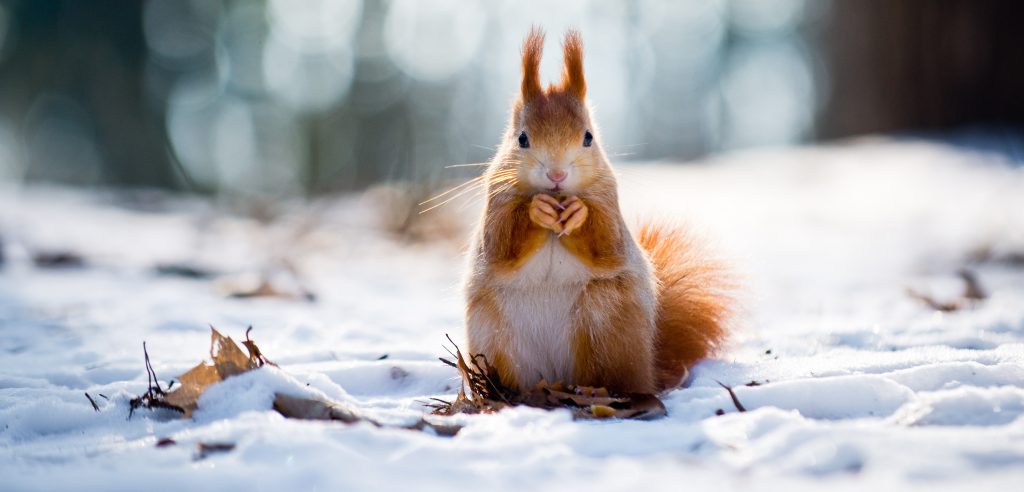As winter approaches, some animals start behaving very differently: some hibernate, some enter a state called torpor, and others experience a process known as brumation. Some animals, like squirrels, do not hibernate, but simply fatten themselves up in the fall and store food for months of relative inactivity—an approach to winter that might be relatable to many of us. Here we will cover several methods different animals use to cope with winter weather, and how these might affect us, humans.
Do Rodents Hibernate?
All of these phrases describe different ways animals sleep or conserve metabolic energy, but there are a few key differences between them:
- Hibernation is the condition or period of spending the winter in a dormant state, characterized by a steep reduction in metabolic rate, heart rate, and respiratory rate.
- Torpor is different from hibernation in that can be very short in duration—even as short as one night—depending on the needs of the animal, whereas hibernation is more prolonged.
Do Rats Hibernate?
Rats do not hibernate. When it gets cold, rats prefer nesting in a warm building, where there is protection from predators and an ample supply of building materials for nests. If they manage to establish a nest under such conditions, rats can remain very active during the winter. Both rats and mice are also excellent diggers and will burrow into the ground if they don’t have access to human dwellings or caves. But rats’ fondness for human property doesn’t stop with our buildings. Rats are also drawn to our vehicles, finding the various hiding places and heat from the engine particularly inviting.
Rats are famously indiscriminate when it comes to their diet—they are even known to eat garbage. Some of rats’ favorite foods include bird seed, pet food, nuts, paper, fabric. Much like squirrels, rats tend to drag their findings back to their nests to be able to eat later. Some infestations can be solved by taking steps to deprive rats of food sources (like securing pet food in rodent-proof containers and taking bird feeders down when it gets chillier).
Do Mice Hibernate?
Like rats, mice do not hibernate and remain quite active in the winter. If outdoors, they will burrow into the ground to survive the elements. Of course, also like rats, mice willingly nest in human structures, as they are warm, replete with material for nests, and safe from predators. Within homes, mice nest in areas that humans don’t frequent, like wall voids, attics, and crawl spaces. Even areas that aren’t temperature controlled, like garages and sheds, offer substantial protection from the elements. Like most rodents, mice hoard material. They will create large caches of food near their nests, so they are able to feed throughout the winter without having to leave their nests very often.
Do Squirrels Hibernate?
Squirrels are homeotherms, meaning that their body temperature stays fairly consistent throughout the year–they don’t hibernate. Instead, as winter approaches, squirrels hoard calorie-dense food items like nuts and seeds, usually by digging a shallow hole and covering it up. In addition, they make a point to maximize food consumption and body mass throughout the fall in order to have some fat reserves for those winter months when food is in short supply.
Squirrels stay in nests or dens all year round, but a warm nest is especially valued in winter months. Typically, squirrels build their nests in trees out of twigs and leaves and often use cavities in trees left over from woodpeckers as dens. Squirrels might also find your attic, shed, or garage a perfectly suitable place to hole up for the winter.
Professional Rodent Removal
Don’t expect the cold winters to solve your rodent problem. Rats and mice are active year-round constantly looking for food. A typical breeding cycle is twenty-five days. One female can have up to eight litters in a year! So ignoring a rat problem during the winter will lead to a bigger problem in the spring. Coupled with the fact rodents can squeeze through tiny holes, it’s essential to let the professionals handle a rodent problem.


